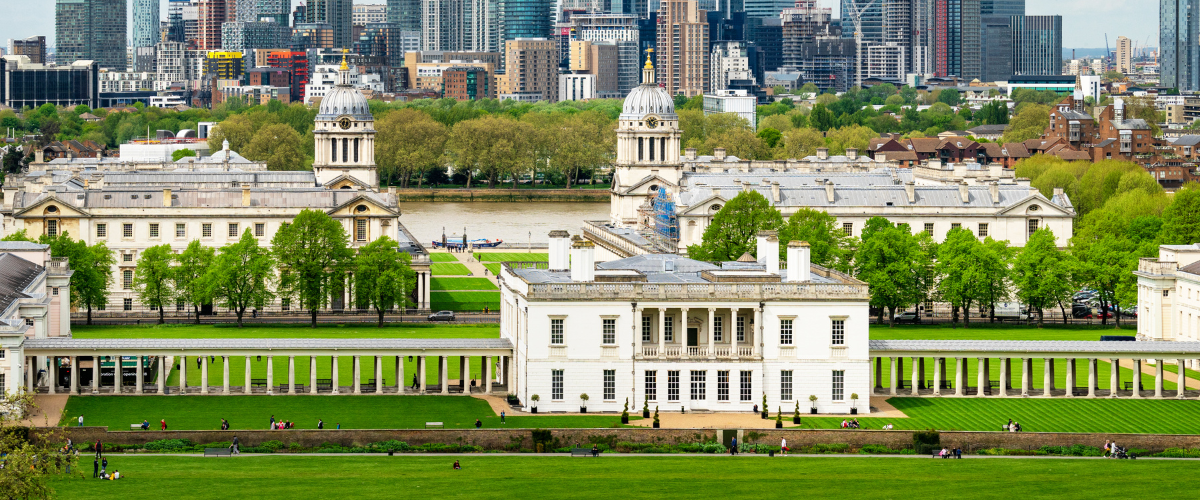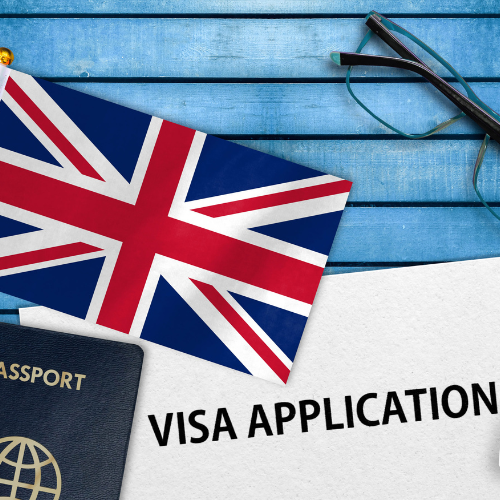STUDY IN UK
UK STUDY PACKAGE
Legal and General Consultants Pvt Ltd is a premier educational consultancy facilitating seamless pathways for students aspiring to study in UK, specializing in prestigious universities and diverse academic programs. Legal and General Consultants Pvt Ltd ensures excellence at every stage of the academic journey. With a comprehensive understanding of the UK education system and unwavering dedication, Legal and General Consultants Pvt Ltd ensures personalized guidance, from admission procedures to post-enrollment support, fostering academic success and cultural immersion. Committed to excellence, Legal and General Consultants Pvt Ltd offers tailored solutions, innovative programs, and unparalleled service, empowering students to embark on transformative educational journeys and shape their futures with confidence.
Overview of United Kingdom
The United Kingdom (UK) is a country located off the northwestern coast of mainland Europe. It comprises four constituent countries: England, Scotland, Wales, and Northern Ireland. The capital city is London, a major global city and financial center. The UK has a rich history that dates back thousands of years, with significant influence on global culture, politics, and economy.
Geography and Climate
The UK is an island nation consisting of Great Britain (England, Scotland, and Wales) and the northeastern part of the island of Ireland (Northern Ireland). It also includes several smaller islands. The landscape is diverse, ranging from the rolling hills and flat plains of England to the rugged mountains of Scotland and Wales. The climate is generally temperate, with mild winters and cool summers, though it can be quite variable.
History
The UK’s history is marked by its role as a major global power, particularly during the British Empire era, when it controlled vast territories across the world. Key historical events include the signing of the Magna Carta in 1215, the establishment of the parliamentary system, and the Industrial Revolution. The 20th century saw the UK playing significant roles in both World Wars and the subsequent decline of its empire.

Government and Politics
The UK is a constitutional monarchy with a parliamentary democracy. The monarch, currently King Charles III, serves as the head of state, while the Prime Minister is the head of government. The UK Parliament is made up of two houses: the House of Commons and the House of Lords. The country has a devolved system of government, with Scotland, Wales, and Northern Ireland having their own parliaments or assemblies.
Economy
The UK has one of the largest economies in the world, driven by sectors such as finance, manufacturing, services, and technology. London is a leading global financial hub. The UK was a member of the European Union until 2020, when it formally exited following a public referendum in 2016, a process commonly referred to as Brexit.
Culture
The UK is known for its rich cultural heritage, including contributions to literature, music, art, and theatre. Iconic cultural figures include William Shakespeare, The Beatles, and J.K. Rowling. The country also has a diverse culinary scene and is famous for its sporting traditions, including football (soccer), rugby, cricket, and tennis.
Education and Science
The UK is home to some of the world’s most prestigious universities, such as Oxford and Cambridge. It has a strong tradition of scientific research and innovation, having produced many notable scientists, including Isaac Newton and Stephen Hawking.
Society and Demographics
The UK has a diverse and multicultural population. English is the primary language, but many other languages are spoken due to the country’s diverse immigrant communities. The UK is also known for its robust public healthcare system, the National Health Service (NHS).
STUDY IN UNITED KINGDOM
Studying in the United Kingdom as a Pakistani student can be an exciting and rewarding experience. The UK is home to some of the world’s most prestigious universities and offers a diverse and multicultural environment. Here’s an overview of what to expect and how to prepare:
Choosing a University and Course
The UK has many renowned universities, such as the University of Oxford, the University of Cambridge, Imperial College London, and the University of Edinburgh, among others. Start by researching courses that interest you and compare different universities to find the best fit for your academic and career goals.
Admission Requirements
Each university has its own admission criteria, but generally, you will need:
Academic Qualifications: Your previous educational transcripts and certificates.
English Proficiency: Proof of English language proficiency through tests like IELTS or TOEFL.
Personal Statement: A statement of purpose outlining your academic interests and why you want to study at that particular university.
Letters of Recommendation: Usually from teachers or professors who know your academic abilities.
Entrance Exams: Some courses may require additional entrance exams or interviews.
Application Process
Applications are typically submitted through UCAS (Universities and Colleges Admissions Service) for undergraduate courses. For postgraduate studies, you apply directly to the university. Be sure to check application deadlines and submit all required documents on time.
Visa and Immigration
To study in the UK, you will need a Tier 4 (General) student visa. The process includes:
CAS (Confirmation of Acceptance for Studies): Once you are accepted by a university, you will receive a CAS number needed for your visa application.
Financial Proof: You need to show that you have enough funds to cover tuition fees and living expenses.
Healthcare Surcharge: Pay the Immigration Health Surcharge (IHS) to access the UK’s National Health Service (NHS).
Cost of Living
Living expenses in the UK can vary depending on the city. London is generally more expensive than other cities. Typical costs include:
Accommodation: University halls of residence or private rentals.
Food: Groceries and dining out.
Transportation: Public transport passes or student discounts.
Miscellaneous: Books, clothing, entertainment, and other personal expenses.
Scholarships and Financial Aid
Many UK universities offer scholarships and financial aid for international students. Look for scholarships specific to Pakistani students or those available for your chosen field of study. Some popular scholarships include the Chevening Scholarship, Commonwealth Scholarship, and university-specific awards.
Cultural Adjustment
The UK is a diverse and welcoming country with people from all over the world. Here are some tips to help you adjust:
Join Student Societies: Participate in student clubs and societies to meet new people and make friends.
Explore the UK: Take time to travel and explore different parts of the UK to better understand its culture and history.
Stay Connected: Keep in touch with family and friends back home to maintain a support network.
Working While Studying
As an international student, you can work part-time during term time (up to 20 hours per week) and full-time during holidays. This can help with living expenses and provide valuable work experience.
Health and Wellbeing
Ensure you register with a local doctor through the NHS. Universities also offer support services for international students, including counseling and academic advice.

Reasons to Study in United Kingdom from Pakistan
Studying in the United Kingdom from Pakistan can be a great choice for several reasons:
- Quality Education: UK universities are globally renowned for their high standards, offering degrees highly valued worldwide.
- Wide Range of Courses: UK universities provide diverse programs aligned with career goals and interests.
- Cultural Diversity: Studying in the UK offers a multicultural experience with global interactions.
- Language Advantage: English instruction enhances language skills and global employability.
- Career Opportunities: Strong industry ties provide internship and job prospects.
- Research Opportunities: Leading in research and innovation with state-of-the-art facilities.
- Historical and Modern Appeal: Blend of historical sites and modern cities like London, Edinburgh, and Manchester.
- Scholarship and Funding: Numerous options for financial support for international students.
- Gateway to Europe: Easy access to explore other European countries.
- Personal Growth: Develop independence, adaptability, and cultural awareness.
What is the Eligibility for a Student Visa for United Kingdom from Pakistan?
To be eligible for a Student Visa (formerly known as Tier 4 Visa) to study in the United Kingdom from Pakistan, you generally need to fulfil the following criteria:
- Have an unconditional offer from a UK institution (CAS).
- Demonstrate sufficient funds to cover tuition and living expenses.
- Provide evidence of English language proficiency (unless exempt).
- Obtain a tuberculosis test certificate if required.
- Submit academic qualifications and immigration history details.
- Ensure appropriate care arrangements if under 18 years old.
At Legal and General Consultants, we’ll help you understand the eligibility requirements for a student visa for United Kingdom and guide you through the application process to ensure that you meet all the necessary criteria.
What are the Requirements for a Student Visa for United Kingdom from Pakistan?
The requirements for a student visa for United Kingdom from Pakistan include submitting several documents and meeting specific criteria. These include:
- A valid passport
- A completed visa application form
- An admission letter from a UK educational institution
- A Foreigner Physical Examination Form
- Financial proof, such as a bank statement that shows you have sufficient funds to cover your living expenses and tuition fees in United Kingdom
- Academic certificates and transcripts
At Legal and General Consultants, we’ll assist you in preparing all the necessary documents and ensure that your application is complete so you have the best possible chance of obtaining a student visa for United Kingdom.
Study And Living Expenses in United Kingdom VS Pakistan
Studying and living in the UK are more expensive compared to Pakistan due to higher tuition fees, accommodation costs, and general living expenses. However, the UK offers a diverse range of opportunities, including quality education, cultural experiences, and career prospects, which may justify the higher costs for many students. It’s essential for students to budget carefully and explore scholarship opportunities to manage expenses effectively.
Study Expenses:
UK:
- Tuition fees: £10,000 to £30,000 per year for undergraduate, £11,000 to £32,000 per year for postgraduate.
- Scholarships available depending on university and course.
Pakistan:
- Tuition fees: PKR 50,000 to PKR 500,000 per year for undergraduate, PKR 60,000 to PKR 700,000 per year for postgraduate.
- Limited scholarships and financial aid compared to the UK.
Living Expenses (Monthly):
UK:
- Accommodation: £600 to £1,200.
- Food and utilities: £250 to £450.
- Transportation: £50 to £150.
- Miscellaneous: £100 to £300.
Pakistan:
- Accommodation: PKR 10,000 to PKR 50,000.
- Food and utilities: PKR 15,000 to PKR 30,000.
- Transportation: PKR 2,000 to PKR 10,000.
- Miscellaneous: PKR 5,000 to PKR 20,000.
Part Time Wok and Post Graduation Work Opportunities in UK for Pakistani Students
Part Time Jobs in United Kingdom
During Studies:
- Hours: Up to 20 hours per week during term time; full-time during holidays.
- Jobs: Retail, hospitality, tutoring, and administrative roles.
- Income: Typically, £7 to £10 per hour.
Post-Graduation Work Opportunities:
- Eligibility: Available to graduates of UK universities.
- Duration: Up to 2 years (3 years for doctoral graduates) to work or seek employment in the UK.
Skilled Work Visa (Tier 2 General):
- Eligibility: Requires a job offer from a UK employer with a sponsor license.
- Duration: Up to 5 years, with potential for extension and settlement options.
Why Choose Legal and General Consultants for UK Student Visa?
Choosing the right consultant for your UK student visa can make a significant difference in the success of your visa application process. Here are some reasons why you should choose Legal and General Consultants:
- Expertise: Our team has years of experience in helping Pakistani students obtain student visas for UK. We know the visa application process inside and out, and we’ll use our expertise to guide you through every step of the way.
- Tailored Services: We understand that every student’s needs are unique. That’s why we’ll tailor our services to meet your individual requirements, ensuring that you have the support you need to succeed.
- Fast Processing Time: We understand the value of time and know that delays can be frustrating. Our strong connections with the relevant authorities in UK enable us to expedite the visa application process for you.
- Comprehensive Support: Our support doesn’t end with obtaining your visa. We’ll be with you every step of the way, from helping you choose the right educational institution to guiding you through the application process and ensuring that you have all the necessary documents.
Our team of experts will help you achieve your goal of getting a UK student visa in a short time and with less money. You can contact us for any inquiry related to student visa for UK

Assistance Provided for Admission in UK by Legal and General Consultants:
- Document verification and assistance: We verify authentic documents and provide expert guidance for university applications and scholarships.
- Application checklist and review: We ensure all necessary documents are in order before applying to universities.
- Streamlined university applications: We simplify the application process by applying to universities on behalf of students.
- Admission confirmation and visa support: We facilitate the admission and visa application process.
- Visa assistance and interview preparation: We help students prepare for visa applications and embassy interviews.
- Pre-departure training and cultural orientation: We provide English language training and insights into UK’s culture.
- Travel arrangements: We handle air ticket purchases and address visa and language concerns.
- Airport pick-up service: We provide airport pick-up for a smooth transition.
- Registration assistance:We assist students through the registration process upon arrival.
- Ongoing support and communication: We maintain regular contact with students to address their needs.
Application Process
UK Study Visa Process for Pakistani students
To study in UK, applicants have to apply for an admission letter, or offer letter. The offer letter is either conditional or unconditional, and once all the conditions are met, University issues the CAS letter. We can do visa application once CAS has been issued. The admission process could take from 20 to 30 days & the UK study visa process timing in Pakistan ranges from 5-7 days on priority service and one month on standard service.
STEP 1: Application Process & Required Documents:
To get an Admission Letter issued by the targeted university in UK, we require the following documents:
- Copy of International Passport.
- Copy of High School Certificates (Matriculation & Intermediate).
Students can send us mentioned documents through Email, Whatsapp, or by visiting their nearest branch office of Legal and General Consultants.

STEP 2: How to get a UK Study Visa From Pakistan?
Students can also Contact our local representative office for further information about the UK Study Visa for Pakistani students.
Students from Punjab & KPK can submit their Study Visa Applications to Gerry’s Visa Center (Islamabad & Lahore) and students from Sindh can submit their visa files in Gerry’s visa, Karachi.
- Online Visa Application Form
- Passport(at least 2 empty pages in the valid passport are needed).
- Admission Letterfrom university.
- Original School Certificates
- Accommodation Proof
- Travel Health Insurance
- Birth Certificate in English issued by NADRA.
- Police Certificate
- Bank Statement(showing transactions of last 28 days, counting from the date of interview) & Affidavit.
- 2 passport-size Photo
UK Visa Fee: Visa fee from Pakistan is 490 pounds
Immigration Health Surcharge: IHS fee from Pakistan is 776 pounds
UK Embassy Appointment in Pakistan:
You can submit your application to Gerry’s Visa Center (Islamabad & Lahore) and in Karachi.
Working hours of Visa Centers:
VAC opening time: 9:00-17:00
Application submission: 9:00-16:00(MONDAY TO FRIDAY)
Passport Collection: 9:00-17:00(MONDAY TO FRIDAY)
UK STUDY PROGRAMS
PARTNER CHINESE UNIVERSITIES
Legal and General Consultants takes pride in its extensive network of partner universities in United Kingdom. We have established collaborations with numerous prestigious UK institutions that offer a wide range of degree programs, including BS, MS, and PhD. Our partner universities include renowned institutions such as
- University of Bolton
- University of Hull
- University of Huddersfield
- Birmingham City University
- Liverpool John Moores University
- Teesside University
- University of Suffolk
- University of Derby
- University of Greenwich
- University of Bradford
- Queen University Belfast
- University of Chester
- Manchester Metropolitan University
- University of Stirling
- Staffordshire University
These partnerships enable us to provide our students with exceptional
educational opportunities and a pathway to success in their chosen fields. Our commitment to partnering with esteemed UK universities ensures that our students receive a high-quality education and a solid foundation for their future careers.
Types of Courses in the UK
Foundation Courses:
What is a Foundation course?
If you are an international student finishing your high school exams, have completed less than 13 years of education and would like to take your first degree in the UK, you will need to study a foundation course at a UK university or college. A foundation is a one-year preparation course for international students who need additional English language and academic preparation for entry onto a UK university undergraduate course.
Foundation programmes are for school-leavers who have studied a non-British curriculum but wish to pursue a degree at a UK university. The foundation course acts as a bridge between your current qualifications and UK university undergraduate entry requirements and is designed to plug academic gaps, improve your English and familiarise you with UK life and culture in preparation for university.
Foundation courses can prepare you for a variety of subjects such as: Business, Finance & Management; Computing; Law; Art and Design; Engineering; Social Science; Medicine; Science and Pharmacy; Media; and Humanities.
Certain foundation providers have partnerships with universities and can guarantee progression to that institution if the student achieves high enough grades. Many programmes will see the student based on campus, benefitting from full university status with complete access to libraries, equipment and sporting facilities.
Foundation Course Requirements
A minimum IELTS score of 4.5 is required for international students wishing to study a foundation, with no single element less than 4.0. If you have no formal English qualifications, you may need to attend an English language course or college prior to starting your foundation course. Documents and entry requirements needed are:
Minimum IELTS score of 4.5 or equivalent
Higher Secondary School Certificate
Higher Secondary transcripts
Reference letter from your high school teacher
Personal statement
Scanned copy of passport and visa
Undergraduate Degrees in the UK
Undergraduate Study at UK Universities
International undergraduate applications to all UK universities are managed by UCAS (Universities and Colleges Admissions Service). As an official UCAS centre, Legal’s professional university consultants can guide you through the entire university application process.
How long do undergraduate degrees last?
For a first degree, most international students study a three-year undergraduate bachelor’s degree, featuring a combination of seminars, workshops, and lectures divided into different modules. Specific modules are optional, so students can tailor their study to what interests them most.
Some undergraduate degrees, such as science and engineering, can take up to four years to complete, while fast-track 2-year degrees enable students to complete their undergraduate course and find a job much quicker.
Types of Undergraduate Degrees
In addition to the standard three-year undergraduate degree, a joint or dual-honours undergraduate degree allows students to split their time between two different courses, meaning a wider choice of modules and increased job options after they graduate.
A sandwich course will last four years and involve one year at a work placement related to your field of study.
Popular Undergraduate Degrees
Business
An undergraduate course in business covers subjects such as marketing, finance, accounting, management, and entrepreneurship, giving students a strong foundation in business basics. It combines theoretical learning with practical application through real-life examples, projects, and internships, and students develop critical thinking, problem-solving, communication, and teamwork skills essential for the business environment.
Law
An undergraduate degree in law is a programme of study where students learn about the legal system and how it works. During their studies, they develop essential skills like critical thinking, research, and effective argumentation. They also get hands-on experience through activities like mock court cases and internships.
Engineering
An undergraduate degree in engineering, also called B.Tech, is a programme where students learn about different types of engineering, like mechanical, electrical, civil, and computer engineering. They gain practical skills and problem-solving abilities by doing hands-on projects and experiments in labs and learn to work well in teams. After completing their degree, they can work in manufacturing, construction, or technology industries, contributing to creating new things and improving existing ones.
Medicine
A medicine degree is a challenging programme where students learn to become doctors. They study subjects like the human body and diseases and how to treat them, learning through lectures, hands-on activities, and working with hospital patients. The course also teaches them about ethics and how to behave professionally.
Computer Science
Undergraduate computer science courses teach students how to write computer programs, understand how computers work, and store and process information. They also develop coding, problem-solving, and logical thinking skills. Degrees cover programming languages, algorithms, and software development. Students can choose to specialise in areas like artificial intelligence or data science.
Cost of Undergraduate Study
The cost of studying in the UK for international students varies depending on the degree level and programme chosen. For undergraduate degrees, fees range from approximately £12,000 to £38,000, with medical degrees being higher. International students should also consider other expenses such as accommodation, living costs, and study materials when planning their budget for studying in the UK.
Entry Requirements for an Undergraduate Degree
Universities consider qualifications such as A levels, BTEC grades, UCAS points, and International Baccalaureate (IB) scores. For example, they might ask for A levels with grades between AAB-ABB or a certain number of UCAS points, usually ranging from 128 to 136. BTEC Extended Diplomas with grades from DDD to DDM or IB scores of 30 to 31 may also be accepted.
Master's Courses in the UK
What is a Master’s Degree?
A postgraduate or master’s course in the UK follows the successful completion of an undergraduate degree. It generally lasts just one year compared to two-year master’s programmes elsewhere in the world. This means international students can save time and money and begin their careers much quicker with a highly regarded UK postgraduate degree.
Why Study for a Master’s in the UK?
The UK is home to some of the leading universities in the world, renowned for their quality of teaching and research. A UK postgraduate degree is held in high esteem by employers. For international students studying in the UK, it is a fantastic opportunity to improve their English and immerse themselves in a multicultural and exciting community of academics and students. You will:

Improve your career prospects
Gain an internationally recognised qualification
Earn more throughout your career because of the weight a UK master’s carries
Be able to shape study around your schedule
A study by the Higher Education Statistics Agency showed that 86 per cent of students who completed a postgraduate master’s in the UK were in full-time employment following graduation, compared to just 75 per cent of undergraduate leavers.
Types of Master’s Degrees
Taught Masters
There are four main types of taught master’s: Master of Arts (MA), Master of Science (MSc), Master of Business Administration (MBA) and Master of Engineering (MEng), with each lasting 1-2 years full-time.
On a taught programme, students are expected to attend weekly seminars, tutorials and lectures, much like an undergraduate degree, and assessment can be via exam, dissertation or project.
Research Masters
A research degree will allow students to take more responsibility for their work and schedule, basing their study around a thesis while supervised by an academic. The most popular research degree is a PhD, which can take 3-4 years to complete and consists of writing a thesis between 60,000 and 100,000 words and then presenting in an oral examination.
Other types of research degrees include the Master of Science (MSc), Master of Philosophy (MPhil), and Master of Research (MRes). These degrees are similar to a PhD but less academically demanding, with much shorter papers.
How Much Does a Master’s Cost?
The average cost of a postgraduate and master’s degree in the UK for an international student is £17,000. Tuition fees at the postgraduate level vary on the type of master’s you wish to study, which part of the UK you wish to live in, and what university you attend.
Postgraduate schools in the UK are far less expensive than graduate schools in the USA, and studying in the UK can be 30 to 60 per cent cheaper than American equivalents.
Popular Master’s at UK Universities
Business and Management
A Master’s in Business and Management (MBM) provides students with a comprehensive understanding of business principles and management practices. The programme covers various business areas, including finance, marketing, human resources, operations, and strategy. It combines theoretical learning with practical applications, allowing students to develop a broad range of skills such as leadership, critical thinking, and problem-solving. Graduates of an MBM programme have diverse career opportunities in industries like finance, consulting, marketing, and entrepreneurship.
Computing
A Master’s in Computing covers topics like programming languages, recent advancements in computer science, and practical skills. By completing this degree, you will have a strong foundation in computer science and be ready to start a career in software development, data analysis, or artificial intelligence.
Engineering
A Master’s in Engineering is a graduate degree aimed at individuals with a bachelor’s degree in engineering. It offers advanced education to prepare students for more independent and complex roles in technical workplaces. Graduates find employment in various fields, such as manufacturing, production, maintenance, quality control, etc.
Medicine
A Master’s in Medicine (MMed) is a postgraduate degree for doctors that provides advanced training and specialisation in a specific medical field. Medical schools award it, typically taking three to four years to complete. The programme includes a combination of classroom instruction, clinical rotations, and examinations, and the MMed degree allows doctors to gain expertise and knowledge in a particular area of medicine, such as surgery or internal medicine. It can be pursued alongside or after completing a fellowship and is often required to become a registered specialist.
Social Science
A Master of Social Science is a postgraduate degree focusing on studying and understanding society and human behaviour. It allows individuals to specialise in areas that interest them within the broad social science field. Graduates can pursue careers as social researchers, academics, social workers, consultants or even transition into different fields like media or business.
Entry Requirements for a UK Master’s
To apply for a master’s as an international student, you need to meet specific requirements. First, you should have completed a bachelor’s degree in a related field with a minimum score of 60%. You also need to show proficiency in the English language by taking tests like IELTS (with a score of 6.5-7) or TOEFL (with a score of 90-110).
Depending on the programme, you may need to take exams like the GMAT or GRE, with scores around 160 for the GRE and 500-600 for the GMAT. Work experience of 1-2 years is often required for professional-level courses like MBA or MIM.
areer Prospects after a UK Master’s
After completing a master’s in the UK, various career prospects are available. Options include working in universities as researchers or lecturers, joining companies in roles like project managers or consultants, starting their businesses, working in the government on policies, joining non-profit organisations, pursuing healthcare careers, entering the finance or banking sector, working in technology and IT fields, joining media or communication organisations, and exploring opportunities in the arts and creative industries.
The specific career path depends on the field of study and individual interests. Gaining work experience and networking can also help in finding job opportunities.
PhD Study in the UK
What is a PhD?
A PhD is a research degree and is the highest award available at universities in the UK. The study is based on a substantial research project on an area of academic interest, typically up to 100,000 words in length, written as a thesis, which then must be defended in an oral examination in front of a panel of experts. Students are assigned a supervisor, and a PhD duration is typically three years full-time and six years part-time.
Very few research degrees feature taught modules, so students are expected to take more responsibility for their work and schedule.
PhD Eligibility
UK universities are free to admit anyone, with PhD admission generally conditional on the prospective student having completed an undergraduate degree with at least upper second-class honours and a master’s degree. English language ability must be proved; a minimum IELTS score of 7.0 is generally required.
PhD Research Proposal
All students who apply for a PhD must submit a research proposal (example). The proposal should address the research you wish to undertake, how you will do it, and why it is important. A panel of experts must accept the proposal before your programme can begin.
Other types of Research Degree
MPhil (Master of Philosophy)
If you wish to study for a PhD, you may first need to begin an MPhil and then transfer to a PhD programme after 12-18 months. An MPhil is also a qualification in its own right and is generally thesis-only, lasting one year full-time and two years part-time. The thesis must present the results of a study and research and be a maximum of 60,000 words.
Students choose to study an MPhil if the proposed research has insufficient scope for a full PhD.
MRes (Master of Research)
An MRes is an advanced postgraduate research degree in the areas of art, humanities, and social sciences. Some Ph.D. Programs require an MRes qualification before beginning a PhD. The programme proper, and the student is required to complete a 40,000-word dissertation.
An MRes is a good way to see if you enjoy conducting research without fully committing to and funding a full PhD.
Professional Doctorate
Professional doctorates are similar to PhDs but are intended to advance professional practice rather than improve academic ability. Joint professional doctorates include law, education, business, engineering, and medicine.
How long does a PhD last?
A PhD in the UK usually takes three to four years if you study full-time. However, it can vary depending on the subject and how quickly you make progress. If you study part-time, it may take longer, typically five to seven years.
How much does a PhD cost?
Funding and researching a PhD can be expensive, with EU students paying up to £6,000 per year, and international students more.
It is rare for a PhD student to not be supported by some form of bursary, grant or scholarship though, and many universities and research councils provide monetary support for part or all of a PhD programme.
PhD admission – how do I apply?
Once you have decided on an area of research and have looked into how you will fund your study, you will need to fill out several documents required when submitting your application. They can include:
Academic transcripts
Academic references
Personal statement
Research proposal (example)
Students will also need to identify a supervisor who will oversee their PhD.

SCHOLARSHIPS
Government Scholarships:
Chevening Scholarships: Funded by the UK government, these scholarships are awarded to outstanding individuals with leadership potential. Pakistani students are eligible to apply. More information can be found on the Chevening website.
University Scholarships:
Many UK universities offer scholarships specifically for international students, including those from Pakistan. These scholarships can vary in terms of eligibility criteria, application process, and benefits. It’s advisable to visit the websites of universities you’re interested in and check their scholarship offerings for international students.
External Funding Bodies:
Organizations such as the Commonwealth Scholarship Commission (CSC) offer scholarships to students from Commonwealth countries, including Pakistan, to study in the UK. They provide full-time scholarships for Master’s and PhD studies. More details are available on the CSC website.
Corporate and Non-Profit Scholarships:
Some corporations, charitable foundations, and non-profit organizations offer scholarships or funding opportunities for Pakistani students to study in the UK. These can often be found through online searches or by contacting relevant organizations directly.
Online Scholarship Databases:
Websites like Scholarship Positions, Scholarships.com, and others compile listings of scholarships available to international students, including those from Pakistan. These platforms can provide a comprehensive overview and help you filter scholarships based on your eligibility criteria.
British Council:
The British Council in Pakistan may also provide information on scholarships, exchange programs, and other opportunities for Pakistani students to study in the UK. It’s worth visiting their website or contacting them directly for updated information.
The British Council administers the following Scholarships for students and professionals who wish to study in the UK:
International Scholarships:
- Commonwealth Scholarships
- The Charles Wallace Visiting Fellowship Programme
- Chief Minister Faculty Development Programme for Faculty of Public Sector Colleges in Punjab
Offered Nationally:
Scotland Pakistan Scholarships for Young Women and Girls – Bachelor’s Programme
Scotland Pakistan Scholarships for Young Women and Girls – Master’s Programme
TEACHING CHINESE LANGUAGE
Legal and General Consultants offers a comprehensive range of teaching services tailored to
diverse student groups. From high school students preparing for the Cambridge English Exams Preparation to university students seeking proficiency in Reading, Writing, Listening and Speaking, as well as business professionals aiming to enhance their language skills through the SELT Exams, we cater to various educational needs.
In addition to our teaching services, Legal and General Consultants takes pride in our commitment to professional development. We offer teacher training programs to equip educators with the necessary skills and knowledge to deliver high-quality English language instruction. Furthermore, we provide invigilator training to ensure the integrity and fairness of examinations. By empowering teachers and invigilators with valuable training, we contribute to the overall enhancement of English language education and testing practices. At Legal and General Consultants, we are dedicated to promoting language proficiency and fostering a positive learning environment for students and educators alike.
IELTS Preparation Courses: Comprehensive courses tailored to prepare individuals for the International English Language Testing System (IELTS) exams, which are widely accepted for UK visa and immigration purposes.
TOEFL Preparation: Courses designed to help students prepare for the Test of English as a Foreign Language (TOEFL), another standardized test accepted by UK universities and colleges.
Cambridge English Exams Preparation: Preparation for various Cambridge English exams such as FCE (First Certificate in English), CAE (Certificate in Advanced English), and CPE (Certificate of Proficiency in English), which are recognized by UK institutions.
One-on-One Tutoring: Personalized tutoring sessions with experienced tutors who focus on individual weaknesses and strengths, offering tailored guidance and support.
Mock Tests and Practice Exams: Regular practice tests and mock exams to familiarize students with the test format, improve time management, and assess readiness for the official exam.
Speaking Practice Sessions: Specialized sessions to enhance speaking skills, focusing on pronunciation, fluency, and confidence building, which are crucial components of language proficiency tests.
Writing Workshops: Workshops dedicated to improving writing skills for exam purposes, covering essay structure, academic writing style, and grammar.
Listening and Reading Comprehension Practice: Exercises and strategies aimed at improving listening and reading comprehension skills, essential for achieving high scores on language proficiency tests.
Study Materials and Resources: Access to a range of study materials including textbooks, practice workbooks, online resources, and audiovisual aids.
Progress Tracking and Feedback: Regular assessments to monitor progress, identify areas needing improvement, and provide constructive feedback to optimize study efforts.
Application Support: Guidance on the application process for the exam, including registration assistance, test date selection, and administrative support.
Customized Study Plans: Tailored study plans based on individual learning objectives, schedules, and target scores.
Group Classes: Group-based learning opportunities for peer support, collaborative learning, and interactive study sessions.
Specialized Courses for Specific Professions: Preparation courses designed for professionals such as healthcare workers, engineers, or business executives, focusing on industry-specific language skills required for work or further study in the UK.
Flexible Learning Options: Various learning formats including in-person classes, online courses, and blended learning options to accommodate different student preferences and schedules.
These services are aimed at helping individuals achieve their desired scores on English language proficiency tests required for studying, working, or immigrating to the UK.

